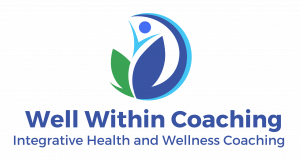To Caffeinate or Not to Caffeinate?
Remember when the Trenta first came out at Starbucks? As if a Venti wasn’t enough? I had been drinking coffee since middle school and it had become part of my daily morning (and afternoon) ritual ever since. I was excited to try the new outsized cup.
Several years later, about two years into my health journey, my perspective shifted. I started to realize All. That. Caffeine. was impacting my gut, stress levels, energy, and sleep.
Over time, I gradually reduced and then eliminated my consumption of coffee. I switched to teas such as black tea and yerba mate. Soon enough, the last remnants of caffeine would become green tea, and occasionally organic dark chocolate, then none at all.
I know most people get a little tense when you talk about “taking away” their coffee. And while it may be unnecessary for you to eliminate it altogether, it’s worth noting that caffeine is a stimulant.
That said, we are all biochemically unique. We don’t all metabolize caffeine the same way. Some may have predispositions or conditions that impact the effect of caffeine on the body-mind system.
Many variables such as your current level of anxiety, sleep, stress and gut-health, for example, could be taken into account.
Particularly if you’re struggling with anxiety, sleep difficulties, gastrointestinal disorders, mold sensitivity, HPA axis dysregulation, or energy imbalances, it may be worthwhile to take a break and notice the effect.
Above all, listen to your body when it comes to what belongs in there and what doesn’t.
Regardless of your caffeine habits and choices, energy is impacted by a range of variables including sleep, blood sugar regulation, hydration, stress levels, movement, sunlight, and mental health.
By this point you may be asking, but aren’t there benefits to coffee? Sure. Coffee provides an oft-needed lift, can help with focus, and is an enjoyable morning and social ritual for millions.
It’s actually been cited for nearly two decades that coffee is the number one source of antioxidants (polyphenols) in the Western diet.
However, this is more reflective of a lack of consumption of produce; thousands of different antioxidants in our food supply come primarily from fruits and vegetables. Coffee is a source of other protective compounds, many of which can also be found at the produce market and farmers market.
As you’ve probably experienced, the quality of coffee varies widely. It’s not just the taste; a cup of organic, shade grown, fair trade, mold-free coffee might have a different effect than a cup from, say, the corner gas station or generic instant.
Coffee beans are among the most heavily sprayed crops, so if you drink conventional, you may be getting a dose of chemicals with your cup. Decaf is typically processed by extracting the caffeine through a process that uses chemical solvents.
What to do? Look for brands that are certified organic and certified fair trade. If you’re sensitive, explore brands that are also free of heavy metals, yeast, mold and mycotoxins.
If you buy decaf, look for brands that are made using the Swiss water method. This is a chemical-free approach that removes more of the caffeine while retaining the antioxidants.
When you choose to consume coffee or other sources of caffeine, consider placing it in the category of beverages to “enjoy responsibly”.
This includes limiting or eliminating your consumption in the afternoon, noting that caffeine has a half-life of 6-7 hours. Be mindful of sources such as soda, energy drinks, and even “hidden” sources such as chocolate and some protein powders and bars. Experiment with periodic breaks, whether monthly or annually.
If you choose to take a break from caffeine, do so gradually to minimize potential effects of withdrawal such as headaches, irritability and cravings.
Consider trying a natural coffee substitute; there are options made from dandelion root, chicory root, or mushrooms. Or switch to low-caf green tea which naturally contains the amino acid, l-theanine. As always, if you have a medical condition or are taking medication, consult with your healthcare provider about what is most appropriate for you.
Want more practical and beyond-the-usual guidance on a variety of health and wellness topics? Check back here monthly so you’re up to date on all my latest blog posts.
If you enjoyed this topic, check out these posts with tips for optimizing your morning, and improving sleep





